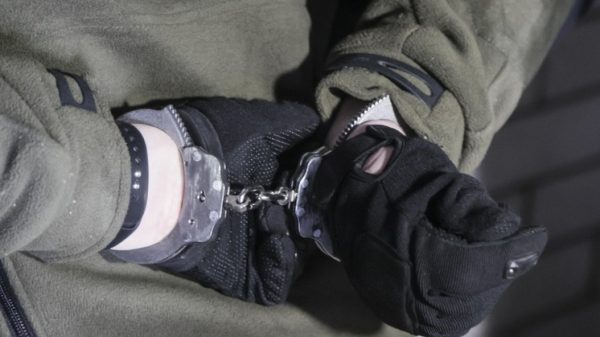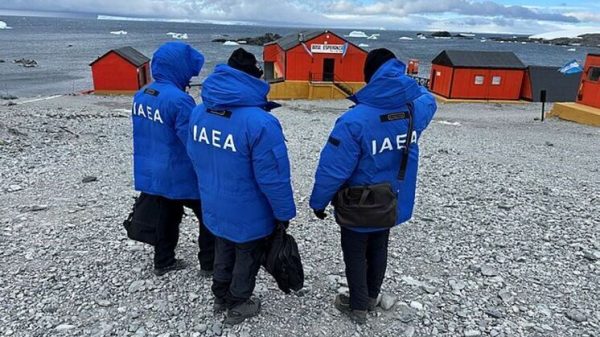The pop singer Rihanna has provoked the ire of the Indian government after wading into the debate over protests by farmers in the country, just as heavy police security and “war-like” barricades continue to be built up at demonstration sites around Delhi.
This week authorities began cracking down on the hundreds of thousands of farmers camped out on the Delhi border since November. Police embarked on a heavy fortification of three camps in Ghazipur, Tikri and Singhu, erecting layers of concrete barriers, digging trenches, putting up barbed-wire fences and cementing iron nails in the roads, in effect cutting off entry and exit to the sites.
Water and food supplies to the protesting farmers have been disrupted and paramilitary troops and police in riot gear have been deployed to all three sites. Access to mobile internet was suspended at the sites up until Tuesday evening after a government order.
Indian journalists face criminal charges over police shooting reports
Read more
Farmers said they had been hit hard by the internet shutdown. “I work tirelessly in the day, helping with the arrangements at the protest site. Normally, a video call in the evening with the family would relieve my stress but the internet shutdown is choking us,” said 25-year-old Harneet Singh, as his eyes welled with tears.
With the once busy Meerut-Delhi highway now resembling a high-security fortress, those at the protest sites said the intensified fortification was a sign that the government regarded farmers as “criminals”.
“The government treats us like thieves but we are fighting for our rights,” said Harbachan Singh, 60, a farmer from Tarn Taran, Punjab, who is managing a community kitchen at the Singhu border.
The farmers are demanding the repeal of three new agricultural laws they say were passed by the government without their consultation and which leave them at the mercy of big corporations.
The farmers say the changes, which will allow big retailers to buy directly from growers, will mean the end of longstanding guaranteed prices for their crops and leave them vulnerable to the whims of big business.
Narendra Modi’s government, which has offered some concessions but ruled out abandoning the laws, says the changes will benefit farmers and draw investment to a sector that makes up nearly 15% of India’s $2.9tn economy and employs about half its workforce.
The draconian shift in tactics against the protests followed a march by the farmers last week during India’s Republic Day that turned violent when thousands of protesters, many on tractors and horseback, burst through police barriers around Delhi borders and entered the city centre. Many stormed the historic Red Fort.. One farmer died in the violence and 500 police officers were injured.
In a tweet to her more than 101 million followers, Rihanna wrote: “Why aren’t we talking about this?!”, in reference to a news report about the heavy-handed measures being used against the protesting farmers.
Rihanna
(@rihanna)
why aren’t we talking about this?! #FarmersProtest https://t.co/obmIlXhK9S
February 2, 2021
Several hours after Rihanna’s tweet, the Swedish environmental activist Greta Thunberg, who has 4.6 million followers, also tweeted, saying: “We stand in solidarity with the #FarmersProtest in India.”
The Indian government appeared to be angered by the celebrity attention on the protests, and in an unusual step it issued a statement that did not directly mention Rihanna or Thunberg but criticised foreign individuals for “rushing to comment on such matters” without a “proper understanding of the issues”.
“The temptation of sensationalist social media hashtags and comments, especially when resorted to by celebrities and others, is neither accurate nor responsible,” said the statement by the ministry of external affairs.
Rihanna’s tweet also prompted responses from Amit Shah, India’s home affairs minister, who tweeted that “no propaganda can deter India’s unity”. And the cricketer Sachin Tendulkar, using the hashtag #IndiaAgainstPropaganda, wrote: “India’s sovereignty cannot be compromised. External forces can be spectators but not participants.”
The Indian government threatened Twitter with legal action on Wednesday after the firm unblocked most of the 250 accounts that the electronics and information technology ministry had reported for using the hashtag #ModiPlanningFarmerGenocide and for tweeting allegedly “fake, intimidatory and provocative tweets” connected to the farmer protests.
The original decision by Twitter to temporarily suspend the 250 accounts – including those of the Indian independent news magazine Caravan, the farmers’ collective Kisan Ekta Morcha, the political commentator Sanjukta Basu, the activist Hansraj Meena – had led to accusations that the firm was silencing dissenting voices on behalf of the Indian government.
After the accounts were restored, a statement from the Indian government accused Twitter of violating its authority and said the company “cannot assume the role of court and justify non-compliance”.






















































Свежие комментарии